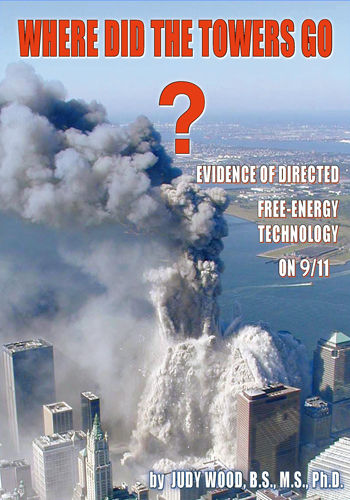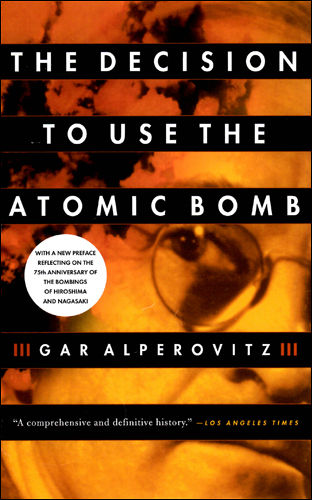Hitler, the War, and the Pope by Ronald J. Rychlak
- Very Average Joe
- Oct 27, 2021
- 6 min read
Updated: Nov 25, 2024
Hitler, the War, and the Pope by Ronald J. Rychlak is basically a defense of Pope Pius XII against the popular calumnies that the pope did not do enough to save the Jews during WWII and even that he was Hitler’s pawn. These views are, perhaps strangely, opposite to those at the time and even at the time of the pope’s death in October 1958.

The author is a professor of law at the University of Mississippi and the book is a thorough presentation of Pope Pius XII’s conduct as well as the reactions of others. This review is of the Revised and Expanded Edition published in 2010.
As part of the defense, the author provides a context by first detailing the background and history of the pre-war years, including man’s early career, the rise of Nazism and Hitler, and how the Roman Catholic Church dealt with fascism and communism since the end of WWI.
After covering Pius XII’s actions during WWII, the author concludes with one chapter regarding the play The Deputy, the element to which the calumnies are traceable, and two chapters addressing some common arguments against Pius XII.
The main text is over 350 pages. The appendix, endnotes, bibliography and index span approximately 230 pages. Overall, it is a well-written book, obviously well researched and thorough. Given the length, the font is forced to be a little small but otherwise, the layout is clean.
Below are some major points, not intended to be a summary.
Pope Pius XII was born in Rome on 2 March 1876 as Eugenio Maria Giuseppe Giovanni Pacelli. His father Filippo was a Vatican lawyer and his mother Virginia was a very religious woman. Eugenio had an older brother Francesco who also was a lawyer.
Pacelli was highly intelligent, fluent in multiple languages. Despite health issues, he was allowed to complete his theological studies and was ordained priest in 1899 at age 23 years. Although already possessing a doctorate in theology, he later obtained a doctorate in canon and civil law in 1902.
Pacelli then started serving the Vatican diplomatic service at the invitation of Cardinal Gasparri.
During WWI when Cardinal Gasparri was by then Vatican secretary of state and Pacelli was the secretary of the Congregation of Extraordinary Ecclesiastical Affairs, the two men liaised with the hierarchies of the belligerents and organized relief programs. In one instance, they helped thirty thousand French and German prisoners return home.
In late 1917, at the request of the Israelite Community of Switzerland, Pacelli worked with the German government to protect the holy sites and Jewish settlers in Jerusalem, for which the Jewish community was grateful. [This is not an argument for or against Jewish settlement in the area but rather shows that Pacelli was not an “anti-Semite” or indifferent to Jewish lives.]
Pacelli was stationed in Munich and remained there after WWI. He spoke out against communism and stayed in Munich when the takeover occurred despite other diplomats leaving for Berlin. On one occasion, armed communists had entered his residence to assassinate him, only to be baffled by his fearlessness and calm and then left.
Pacelli was recalled to Rome in December 1929. He was then made a cardinal and became the secretary of state shortly after that.
Even in those early days (when some were unsure of what to think of Hitler), Pacelli’s private conversations and writings reveal that he saw Nazism for the danger it truly was.
Under Pope Pius XI, Cardinal Pacelli signed a concordat with Germany on 20 July 1933. A concordat does not imply collaboration or friendship. It simply states the terms and responsibilities between the Church and the State in question.
Pacelli was in effect forced to sign the concordat since without it the Church may not even function within an increasingly hostile Germany. And if Hitler did not adhere to the agreement, there would at least be something in writing to base an argument. Pacelli was a priest but he was also a lawyer and diplomat who understood the game.
Despite the protests of Pius XI and Pacelli, Hitler did not cease his hostility toward the Church or the Jews.
Pacelli as secretary of state oversaw the newspaper L’Osservatore Romano and the Vatican Radio. It was in 1931 when he hired inventor of wireless broadcasting Guglielmo Marconi to install a radio transmitter in Vatican City, which was upgraded in 1937.
Both channels were consistently used to criticize and refute the ideas and laws promoted by fascism.
At the death of Pius XI, the German ambassador to the Holy See made a veiled warning against electing Pacelli to the papal throne whilst offering condolences. Obviously, the Nazis viewed Pacelli as a threat given the latter’s consistent stance against the former.
Pacelli was elected pope on the first day of the conclave on 2 March 1939.
The “hidden encyclical” that Pius XI supposedly wrote but later allegedly suppressed by Pacelli (as Pius XII) is a myth. Pius XI asked for a paper that someone thought might later be used as an encyclical. There was never even a draft encyclical. When the paper was sent to Pius XI, he was already ill. Later, the paper was found with no notations, suggesting that he may not have reviewed it before he died. Even the writers believed Pacelli never saw it. In any case, Pius XII released his first papal encyclical Summi Pontificatus (“On the Unity of Human Society”) which was a thinly veiled criticism of Nazi Germany, amongst other things.
During WWII, despite the Church’s official position of neutrality, the Vatican Radio was the only broadcast that continuously aired from (what is in effect) occupied territory and in multiple languages denunciations of Nazi atrocities, reports of the state of the Church and people (including Jews) in occupied territory and reports intended to counter Axis-power disinformation.
Also, from 1940 to 1946, the Vatican Radio transmitted 1.25 million shortwave messages to help locate POWs and missing persons.
At the time, the official response to queries and complaints was that the Jesuits ran Vatican Radio. However, records reveal that Pius XII wrote many of the transmissions and issued directives for others.
It got to the point that Catholic clergy in occupied territory reported increased persecution in response to these transmissions, in effect requesting the Vatican to tone it down. [This further refutes the criticism that Pius XII did not say enough.]
The Allies bombed Rome on 19 July 1943 despite Pius XII’s request. Afterwards, Pius XII withdrew and distributed from the Vatican Bank two million lire as aid to the population.
When German troops entered Italy, Pius XII ordered that all available Church buildings in Italy be used to hide Jews. This included convents, monasteries and hospitals even if the illnesses were fictitious.
Jews were given Catholic baptismal certificates as cover. They were also taught prayers in Latin to help maintain that cover.
Ultimately, according to Israeli consul in Italy Pinchas E. Lapide, Pius XII’s efforts and networks saved 400,000 Jews during the war. Later, he revised the estimate to between 700,000 and 860,000. [These figures are greater than all other aid organizations combined.]
During the war and afterward, mainstream media praised Pius XII’s conduct and efforts. (One example is the article “Peace & the Papacy”, Time Magazine, Aug. 16, 1943, No. 7.) Many Jewish organizations also expressed their gratitude and praised the pope’s efforts. Even at the time of his death in October 1958, he was seen in a positive light.
Although he could have lived in relative comfort, Pius XII applied to himself and the citizens of Vatican City the same wartime restrictions that were in effect in Rome. He worked 18-hour days. By the end of the war, he weighed 130lbs despite being 6’ in height.
Even after the war, Pius XII used Church funds to help feed people and to aid reconstruction. As late as 1947, a quarter-million people were fed each day.
Pius XII’s bad reputation is traceable to the play The Deputy (Der Stellvertreter) by Rolf Hochhuth. The play opened in Berlin on 23 February 1963. Although fictitious, it was claimed to be based on facts. The play was basically a charge that Pius XII was willfully silent regarding Nazi atrocities.
Hochhuth was an unknown writer who was not particularly good. Nevertheless, the play was produced by Erwin Piscator, also a known communist. The play was promoted like communist propaganda. The English-speaking and French producers and translators had communist affiliations.
Former Romanian intelligence chief, Ion Mihai Pacepa, reported in 2007 that the play was a product of a KGB disinformation campaign to discredit the moral authority of the Church by discrediting Pius XII.
The author addresses some common arguments, including some errors and slants found in some anti-Pius books. To mention one example: the cover of Hitler’s Pope by John Cornwell makes it look like Pacelli (as pope) just had a personal meeting with Hitler. Setting aside that the photo is actually dated 1927, Pacelli’s non-papal regalia and the German soldier’s Weimar uniform give away the timing; that is, before Hitler came to power and before Pacelli became pope.
Be sure to subscribe to our mailing list so you get each new Opinyun that comes out!






Comments